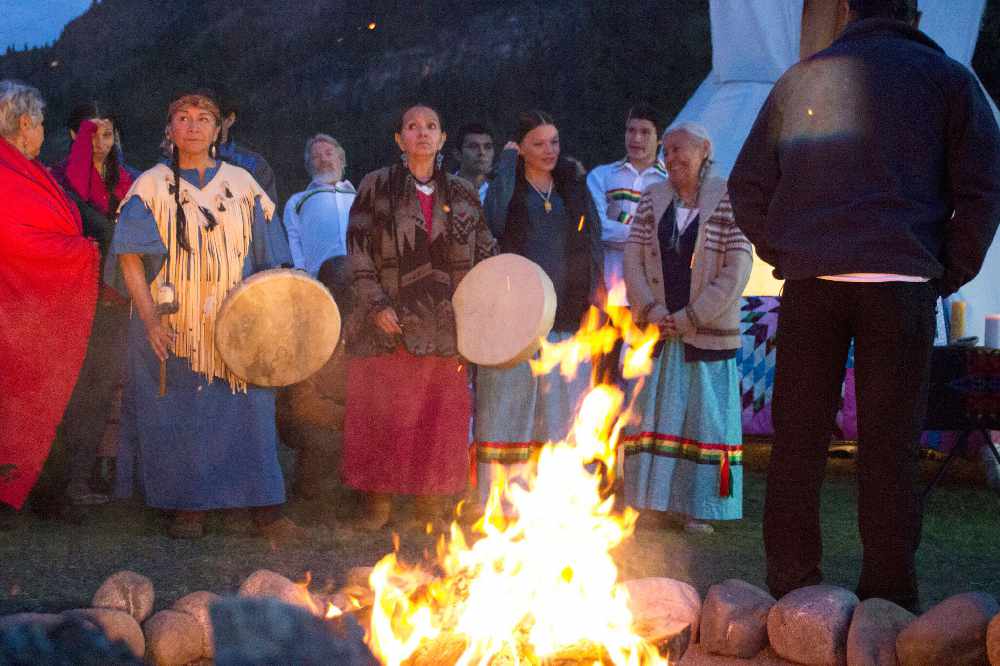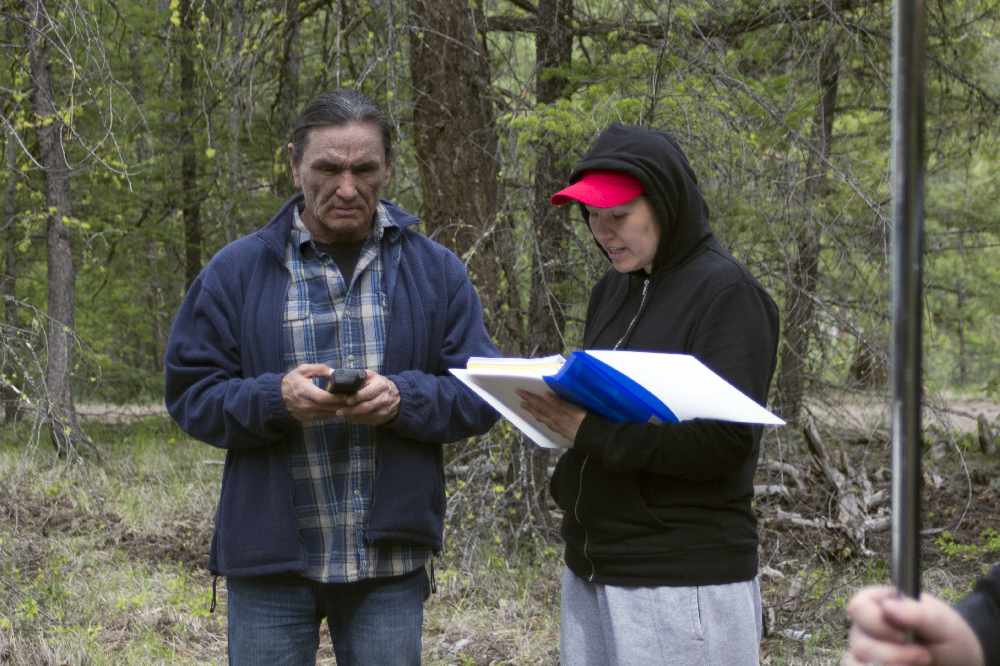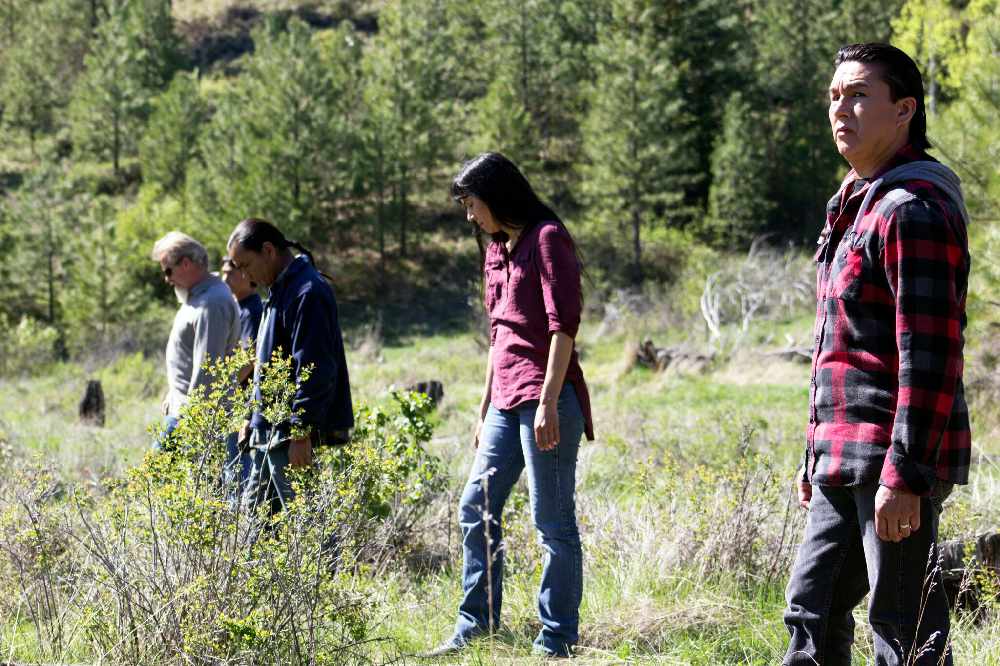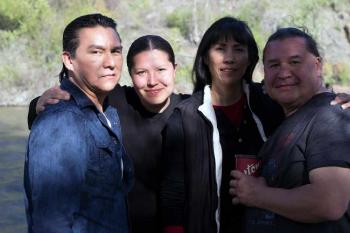By Andrea Smith
Windspeaker.com Contributor
Imagine your grandmother going missing. Imagine she was on a drive to visit her children in a neighbouring community when it happened, a drive she had taken countless times before.
And imagine the police refusing to investigate, and actually lying to you about the work they had done on the case.
This was the experience of filmmaker Petie Chalifoux, who 16 years ago lost her grandmother this way.
Now she’s hoping to shed light on missing and murdered women with her film “River of Silence”, which will premiere at the Vancouver International Women in Film Festival on March 8.
“When that happened to me at this young age it was very frustrating. And I didn’t realize until I was in film school that I had a lot of anger built up about what happened... And to top it off, in my second year, I hear about the government saying, ‘There’s no need to look into the women that are missing… That’s not their concern,” said Chalifoux.
Realizing then that she had the power of film at her disposal, she set to work. She was writing the film script all throughout her second and third year, while filming took place in the fourth. The writing was the hardest part, she said, just because the topic was so heavy.
“The writing stages for “River of Silence” was very tough. I read a lot of different stories and the things that different family members had gone through… There were a lot of tears. I spent a lot of time crying and typing, crying and typing…” said Chalifoux.
“But it was actually through that, that I realized I had a lot of deep seated pain and anger. It was healing as much as it was painful,” she added.
“River of Silence” is about one specific family who loses a daughter. The film follows them through the process of looking for her, and what happens when they do find her. The family is a mother and father, some relatives, and also a grandmother. This addition of a grandmother was personal for Chalifoux.
“I knew I wanted to have a grandmother, because I didn’t have mine there. It’s such an important person to have in your life, and mine was taken away,” she said.
Chalifoux’s partner, Micheal Auger, was the executive producer for the film. He chose the video shots and camera angles, as well as directed people on set. He also supported his wife throughout her writing process, both in terms of creativity, and emotionally.
The film was important to him, too, for the same reason it was important to Chalifoux, but there is another part of the film he also hopes will shift viewer’s perspectives, the role of the exceptionally caring father.
“In terms of a male perspective, we wanted to show balance. That Indigenous men… we feel the same pain, even though we’re a bit more challenged in expressing it. Because there’s so much anger and so much rage, and a lot of men… and a lot of women, too… just end up hurting themselves,” said Auger.
“We wanted to show a father who is there, who is present, and doing everything he can to save his family,” he said.
And therein lies a key aspect of this entire film—every one of the characters is a moral, stable, and non-substance abusing individual.
For both Chalifoux and Auger, they are hoping this will help shatter negative stereotypes, which tend to blame the victim, more than the assailant (something the media around Tina Fontaine’s death recently demonstrated).
On March 8, there are free events all day, in honor of International Women’s Day. Chalifoux will participate in a panel discussion on violence at 11 a.m., and her film will screen at 2:30 p.m. She will also participate in a panel discussion called Indigenous Filmmaking.
Two other Indigenous filmmakers will debut their short films, just before “River of Silence” screens, “Thirza Cuthand is an Indian Within the Meaning of the Indian Act” is directed by Thirza Cuthand; and “Nosism” is directed by Sonya Ballantyne. The films are between eight and 10 minutes each.
To end on the story on a sad note, an unfortunate reality when it comes to missing and murdered Indigenous women and girls in Canada, Chalifoux’s grandmother’s assailant was never found.
The police were content with the explanation that Chalifoux’s grandmother had walked one kilometre from her car and died there, where her body was found, for no apparent reason.
Chalifoux, however, believes her grandmother was murdered, and “dumped off” there, despite what the police said.
“My hope is that when people leave the theatre, regardless of their nationality… They leave with a sense of knowing that any woman or man who goes missing or is murdered could have been their own sister, their own mother, their own brother, their own grandfather,” said Chalifoux.
“I hope that, in a sense, they actually begin to care more about what’s happening to our people,” she said.
For more information go to: http://www.womeninfilm.ca/




